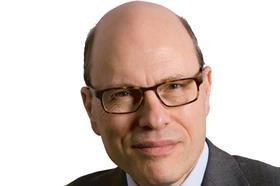Hundreds of protesters accused of expressing support for the banned terrorist organisation Palestine Action – including more than 60 arrested outside the Labour conference in Liverpool this week under section 13 of the Terrorism Act 2000 – will be particularly interested in a hearing at the Supreme Court next month. The UK’s most senior judges have agreed to consider appeals by two defendants separately accused of another, more serious, terrorist offence.

Unusually, their trials have not yet taken place. For this reason, we can report little more than a summary of the allegations each defendant faces. Helpfully, the Supreme Court has given us more details than the Court of Appeal provided when dismissing their appeals last December.
The first defendant is referred to as ABJ. She is alleged to have expressed a belief or opinion supportive of a proscribed organisation, contrary to section 12(1A) of the Terrorism Act. The organisation is Hamas and the allegation relates to a speech that she made in Brighton city centre on 8 October 2023 as part of a Palestine Solidarity Campaign event.
The second defendant, BDN, faces a similar charge. It arises from a placard he held and a speech he made outside the gates to Downing Street on 17 October 2023.
Counsel for ABJ argued that the prosecution needed to prove that the defendant knew Hamas was a banned organisation. The trial judge said that was not necessary.
More relevant to the hundreds accused of displaying signs in support of Palestine Action is an argument put by both these defendants that the charges they face are incompatible with article 10 of the human rights convention, which protects freedom of expression. They say the only way of making the Terrorism Act compatible with their convention rights would be to give the jury specific directions on proportionality.
That argument was dismissed by the senior circuit judges who are to preside over the two trials. Both judges held that proof of the ingredients of the offence would be sufficient to ensure that a conviction was a proportionate interference with a defendant’s rights under article 10.
The Court of Appeal agreed. Its ruling says ‘the jury at trial will not be required or permitted to carry out an assessment of the proportionality of a criminal conviction attaching to the alleged behaviour if they find the elements of the offence proven’.
Offences under section 12 – which is about encouraging others to support terrorism – attract much heavier penalties than offences under section 13, which criminalises those who express support for a banned organisation. Even so, any conclusions the justices reach on freedom of expression may have a bearing on the Palestine Action supporters awaiting trial.
Though it refused permission to appeal, the Court of Appeal certified two questions of public importance which the Supreme Court has now agreed to hear. The first is whether section 12(1A) of the Terrorism Act is a disproportionate interference with the defendants’ human rights and, if so, whether the legislation can be ‘read down’ to make it compatible. The second asks what mental element has to be proved.
The concept of ‘reading down’ allows legislation to be reinterpreted by the courts. But in another case soon to come before the Supreme Court, a judge went further and disapplied an act of parliament.
The lead claimant is Martina Dillon. In 1997, her husband was shot dead in Northern Ireland. But investigations of deaths arising from the Troubles were brought to an end last year by the Northern Ireland Troubles (Legacy and Reconciliation) Act 2023.
Dillon and others challenged this. In February last year, a High Court judge in Belfast declared that some provisions in the 2023 act were incompatible with article 2(1) of the Windsor Framework. Under section 7A of the EU (Withdrawal) Act 2018, article 2(1) has primacy over these provisions, thereby rendering them of no effect.
The ruling was upheld on appeal and is now being challenged by the secretary of state, Hilary Benn. But Benn has also announced plans to ‘repeal and replace’ the 2023 act. One effect of that would be to restructure and rename the reconciliation commission set up to investigate Troubles-related deaths and serious injuries. As far as we know, the government is still pressing ahead with its appeal.
On the Supreme Court’s menu for December is an appeal by a Swedish company called Oatly which, as the name suggests, manufactures drinks from oats. It is not allowed to call its product ‘oatmilk’ in the UK – unlike in the US – but it wants to use POST MILK GENERATION as a UK trade mark.
A challenge by the UK dairy industry was upheld by the Intellectual Property Office before being dismissed by the High Court and then reinstated by the Court of Appeal. The cream of Britain’s judiciary will tell us who’s right.































1 Reader's comment